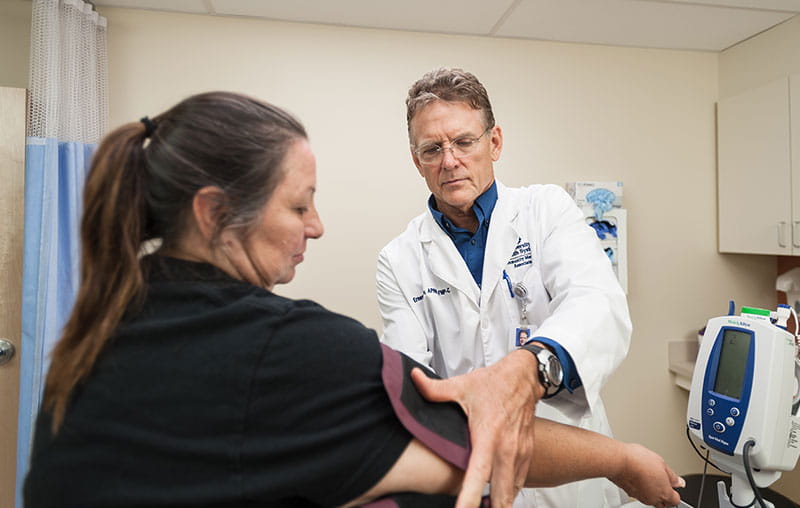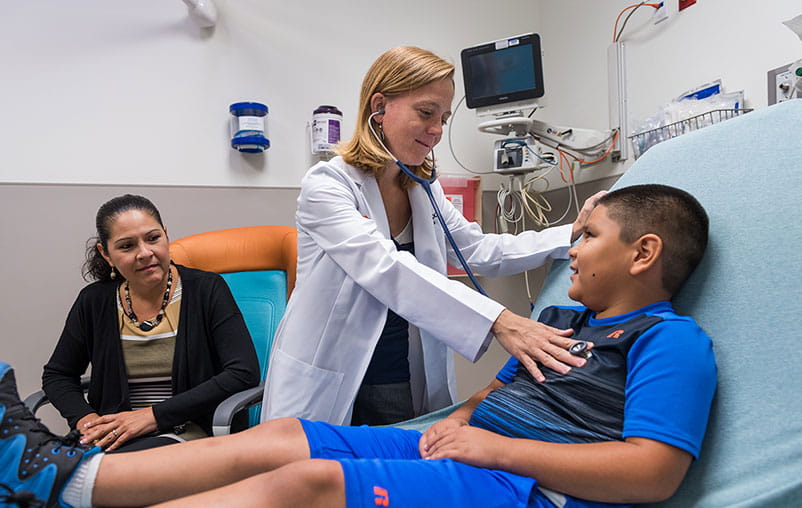Respiratory virus infections are on the rise early this season. Dr. Jason Bowling, University Health’s hospital epidemiologist said, “Recent lab results for respiratory viruses (such as RSV, rhinovirus, flu, and others) were more than 50% positive. Flu in particular is trending high for adults and Respiratory Syncytial Virus (RSV) for pediatric patients is worrisome because cases are rising sharply very early.”
The respiratory virus season in Texas typically peaks around January but can last until March.
What Is RSV?
RSV comes from a virus that causes a common cold in most people. It easily spreads through droplets from a cough or sneeze of someone who is infected.
The virus can also spread through direct contact with contaminated hard surfaces. Most adults and children with RSV have mild symptoms that can be resolved with home care.
Who Gets RSV?
Adults and children can get RSV. Most people are exposed to the virus at least once a year. Infections with common cold-like viruses cause our immune system to ramp up and fight the illness. This helps us build immunity the next time our body encounters it.
What Are the Symptoms of RSV?
Symptoms typically include congestion, sneezing and decreased appetite and activity. Babies and older adults require monitoring because they are more susceptible to complications from RSV.
Are RSV Symptoms Similar to Other Illnesses?
Yes, RSV is a respiratory virus that we usually see during the winter when people are indoors together. Other respiratory viruses that are similar and cause infections during this time include the flu, rhinovirus and adenovirus.
COVID-19 also remains in circulation, although recent numbers have been trending down.
When Should I Take my Child with RSV to the Doctor?
In some young children and infants, the virus can lead to a persistent cough and to more severe infections, such viral pneumonia or bronchiolitis. This can make it hard for the baby to breathe and requires specialized medical care.
The following symptoms may indicate a more severe respiratory infection. Contact your child’s doctor if they have any of the following symptoms:
- High-pitched cough or wheezing
- Dehydration (decreased urination)
- Extreme fatigue or lethargy
- High fever
Caregivers should seek emergency care for their baby or child if the following symptoms are present:
- Trouble breathing (hard and fast breaths or sucking in air)
- Unresponsiveness
- Skin, lips or nails turn blue
Can a Person Have RSV and Flu at the Same Time?
Yes, individuals can be infected with multiple respiratory viruses at one time – such as the flu and RSV or COVID-19 and the flu. Coinfections are not uncommon.
Viral coinfections can cause more severe symptoms, especially for individuals with a history of asthma or other chronic illness.
Can I Get the Flu Vaccine and COVID-19 Booster at the Same Time?
Yes, individuals can safely get the flu and COVID-19 vaccines at the same visit. Go to WeCanDoItSA.com to find a vaccination location near you.
Does Cold Weather Cause RSV?
No, cold weather does not cause RSV.
Colder weather contributes to more cases for multiple reasons. More activities take place indoors with longer exposure times to one another, and decreased relative humidity which makes it easier to spread viruses and we are touching common surfaces more frequently.
The close contact allows the virus to spread more easily.
Why Is RSV on the Rise?
Medical professionals believe this season’s high rate of RSV relates to our behavior. Many of the COVID-19 pandemic precautions taken during the last couple of years have now relaxed. We are out of the house more, around larger crowds and not wearing masks.
Young children, especially babies, lacked exposure to respiratory viruses during that time and have not built as much of an immune response. As we gather more, the opportunity for new infections increases.
How Can I Protect My Family from RSV?
There is no vaccine widely available for RSV.
Dr. Bowling urges everyone eligible to receive both the flu shot and a COVID-19 booster for the most optimal protection from these two respiratory viruses. Vaccines minimize the severity of symptoms and reduce hospitalizations.
Other steps you can take to help reduce your family’s exposure to respiratory viruses, such as RSV, include:
- Wash your hands frequently, especially before eating
- Clean and disinfect high-touch surfaces regularly
- Cover coughs and sneezes
- Stay home if you are sick
- Consider wearing a mask in crowds
- Be selective when joining large gatherings





